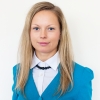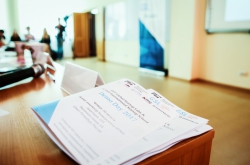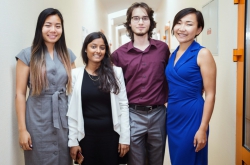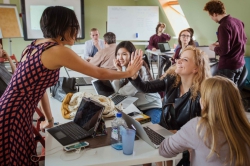The SumIT brand began in 2012. At first, it was a full-fledged acceleration program for Russian projects, a role which was later filled by Future Technologies. The educational process lasted for five to six months and mostly involved student projects from St. Petersburg which were accelerated to a certain stage by mentors. Later, the name began to be used for an international summer school. One such example are the international acceleration programs that were developed in collaboration with UCLA. This year will mark the first time that the program is developed by ITMO’s business incubator together with partners from South Korea.
For two weeks straight, three teams will attend an intensive training course in entrepreneurship at ITMO University’s business incubator. The program will include lectures, seminars and individual project work.

Elena Gavrilova
“When developing this program, we took into account the projects’ level of progress using the information about the startups that we were provided by our Korean colleagues. After we hear their first pitches, we will once again consider how the program can be modified to be perfectly suitable to the projects’ needs and to accelerate them to the right level. We expect that the teams are already familiar with the basics, so we will educate them on the more advanced methods of marketing, brand-building, product launching, etc. We also assume that they have the staff, a business model, a fully-formed image of their product and their target audience, a market assessment and the like. But our main focus is to give them an understanding of the specifics of the Russian market. Meaning that if they ever happen to decide to introduce their product on the Russian market, they will already be familiar with the local entrepreneurship model,” – shares Elena Gavrilova, head of ITMO University’s business incubator.
The main subjects that the young entrepreneurs will learn about at the Summer School are: the Russian IT market; B2C and B2B in Russia; marketing and PR communications for startups; project metrics and economics; fundamentals of financial planning; investment opportunities for launch in Russia; and public speaking.

SumIT Summer School's students
“I am from St. Petersburg myself and I’ve spent quite some time working with startups here. In Korea, back when we began developing a program on entrepreneurial education for students and forming the teams, we were given an opportunity to take our students abroad for the summer for further education. And so I thought – why not come to Russia? Business communication between our countries is not developed that well, even though they are quite close to each other and a lot of Korean companies are represented in Russia. I thought it would be a good idea to begin by developing these three startups that we’ve brought here, and thus bring the countries’ startup communities closer. I would like for Koreans to learn about Russia and to realize that it is a large and promising market for many kinds of enterprises,” – comments Vladimir Mun, one of the program’s organizers.
The program is financed by the Chungbuk Center for Creative Economy & Innovation, a South Korean governmental organization that encourages entrepreneurship and innovation. Another participant is RHC, a Korean consulting company that works with startups in Korea and Russia. Several programs exist today in South Korea that assist business projects in entering the global market. Until recently, there was little to no business communication between Korea and Russia, but even now the Korean side is open not only to sending their entrepreneurs to Russia for training, but also to hosting Russian projects in their country.

Each team is made up of three members. The first startup, COVAL, is working on a device for women called Rozebelle. The tool is supposed to provide security to users on their way home or in other situations. In the period of 2010 to 2014, the rate of sexual harassment in the world has risen by 26%. Every day less women feel safe walking home on their own. For that reason, the developers propose that they use a small, keyfob-like device connected to a mobile app. When a button on the device is pressed, it sends a message to police (and other agencies) and notifies family or close friends. The device would feature several modes, including one that ensures a safe walk home, one that sends an emergency situation notice, etc.
Another startup, called IDEA MUSE, has to do with growing plants. The team intend to develop a high-tech device that would control the level of humidity in the soil and analyze data gathered from pollen.

The third project, 5AM, proposes its customers to enrich their daily diet with freshly-squeezed juice that can be delivered anywhere (in a range outlined by the company) through the most eco-friendly way possible – on a bicycle. According to the developers, a majority of people today require natural vitamins, which are abundant in the juice made by the startup – their product is made only from fresh fruit and vegetables.
The Korean organizers will also take part in training the young entrepreneurs. Vladimir Mun will teach the students about financial modeling, while his colleague David Kang will talk about the tools of project marketing. In addition, the mentors will give talks to the students during the mentor sessions at the MIT Global Startup Labs program. Among the program’s organizers from Korea is the head of Center for Creative Economy and Innovation, Shinhye Park.
The program will be concluded with a Demo Day on August 10. At the final event, teams will showcase their projects to experts and investors. This year’s Demo Day is conducted in collaboration with the MIT Global Startup Labs program (the first-ever MIT program in Russia, held at ITMO’s business incubator).
“We decided that it would be a correct decision to bring together the graduates of these two international programs, since that will allow the teams to show their projects to as many sponsors, experts and investors as possible. A total of ten startups will be present at Demo Day,” – shares Elena Gavrilova.






